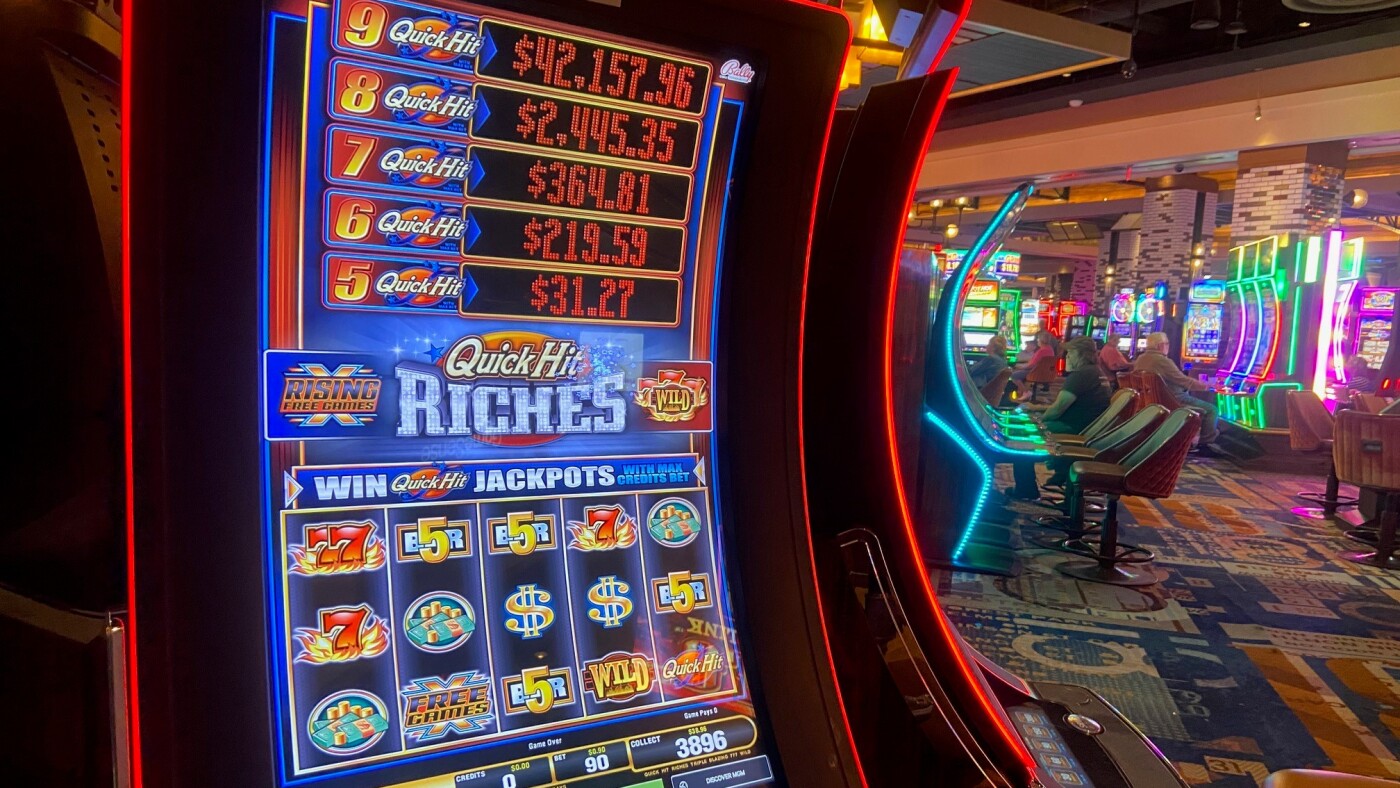As sports betting explodes, should states set more limits to stop gambling addiction?
toggle caption Karen Brown/NEPM
It's hard to promote moderation and financial discipline from the bowels of a casino.
But that's what Massachusetts state workers try to do every day, amid the clanging bells and flashing lights of the slot machines.
This story was produced in partnership with KFF Health News.
At the MGM Springfield in western Massachusetts, these workers, wearing green polos, stand outside their small office, right off the casino floor.
Above them the sign reads, "GameSense," the state's signature program to curb problem gambling.
A mounted screen cycles through messages such as "Keep sports betting fun. Set a budget and stick to it."
The workers hand out free luggage tags and travel-size tissues in an effort to get people to stop and chat.
If they succeed, they give customers brochures with the state's gambling helpline number and website. They can even enroll them in a program, called Play My Way, that allows customers to set monthly spending limits on how much they gamble.
Sponsor Message
Outside the casinos, GameSense is marketed on social media and on sportsbook apps and websites. Meanwhile, the state's Department of Public Health puts its own moderation messages on buses and billboards.
"That's a big movement in 12 years," says Mark Vander Linden, who oversees the GameSense program for Massachusetts.
Massachusetts' first casino opened in 2015, and as the gaming industry grew, the state developed what it calls a "responsible gaming" program, funded by a surtax on gambling industry profits.
toggle caption Karen Brown/NEPM
At first, the state
Continue Reading on NPR
This preview shows approximately 15% of the article. Read the full story on the publisher's website to support quality journalism.
